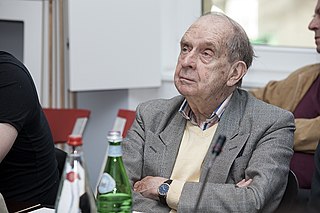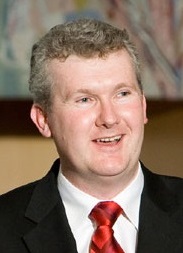A Quote by Torbjorn Tannsjo
In many European countries we have populist indirect democratic systems. The people elect, in a proportionate manner, a parliament. The parliament with all its parties is representative of the political opinions among the citizens. It is reasonable to claim that the people rule itself through the political institutions.
Related Quotes
The US two party system is very different, of course. Here the people decides about who should rule them, but it is not reasonable to claim that the people rules itself through the political institutions. In comparison, I find that the standard European system is better, also as a model for global democracy.
For the institutions of the European Union are at present incomplete. A European Senate is badly needed to complete them. By creating an upper chamber in the European parliament, a new bridge could be built between national political classes, which retain democratic legitimacy, and the decision-making process in Brussels. Such a Senate should be recruited by indirect election from exisiting national parliaments.
The European Union is effectively a union dominated by the German political and economic elite. Its main function is to serve as a nucleus for financial capitalism and to ease the road for that capitalism. The other functions just irritate everyone: it's undemocratic; decisions are not made by parliament; the European Parliament is not sovereign.
I must say that, in the first instance, we got the request from many African countries who said, look, you people had better host the Parliament. So, the general feeling around the Continent was that it would be better that the Parliament was based here. In part, because of what this country has done with regard to establishing a democratic system, and we have responded to that. We have said, fine.
Economically and politically, Germany is extremely stable. There are countries with functioning governments whose institutions don't work. My only concern is about Europe. There's a risk we will run out of time. We have been blessed with a pro-European French president, but we are also approaching the next elections for the European Parliament in 2019, and it will be important for pro-European parties present a credible answer to the anti-Europeans on the left and the right.
I believe Tunisia and Egypt should look to Turkey and see what not to do. Turkey seems to be a secular and democratic country but it is only a show. We are losing the effectiveness of democratic institutions like parliament and judiciary. They now are turning into tools for the benefit of a president-ordering system. A democratic government is possible only on a comprehensive democratic base surrounded by the participatory action of ordinary people.
It goes to local authorities and even to members of Parliament so that individual citizens almost become people who want to sit and wait for their member of Parliament to come and solve the problem. Now that won't take you anywhere. And if you follow it, you will see that it feeds corruption in the country.
No doubt, you've got a parliament now - I mean, Malcolm Turnbull says he'll work with the parliament he's got. He's got a parliament where a majority of the members of parliament want that law to be changed. He's got a parliament where there's a majority in each House who have publicly said they want to have a Royal Commission into banks.
The real political task in a society such as ours is to criticize the workings of institutions that appear to be both neutral and independent, to criticize and attack them in such a manner that the political violence that has always exercised itself obscurely through them will be unmasked, so that one can fight against them.
































